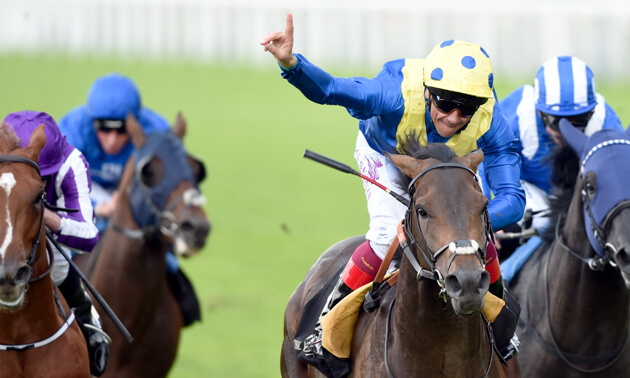Be realistic in your expectations
If you currently bet on horse racing and lose money, then it’s unlikely to you’ll be able to turn into a successful bettor overnight. In the same way that you’d never dream of trying to run a marathon a week after your first parkrun, you have to look to make improvements gradually. Betting on horses is a hobby for the majority, and the first step is to stop that hobby costing you money so that you are breaking even, before gradually beginning to turn a profit.
Be Prepared To Do Lots Of Work
‘The more I work and practice, the luckier I get’ is a quote from golf legend Gary Player and the same applies when it comes to betting on horse racing. The more analysis that you are able to put in, the better prepared you will be to turn a profit. Watch as much racing as you can in detail. Be able to analyse which horses were favoured by the run of the race, and which were disadvantaged. If possible, keep detailed notes in horse trackers like the one available for free on the My Timeform feature and don’t be afraid to lean on the expertise of others. Using Timeform ratings and analysis can be a valuable time-saving shortcut as an in to any race.
Specialise
Racing lends itself so well to being split into many categories, that it is possible to isolate a select band of horses and races to concentrate on. Be it Flat or Jumps, chasers rather than hurdlers, northern sprints, races at mile and a half and further etc. It will depend on how much time you have to devote to form study, but in the short term it will be easier to concentrate on attempting to achieve a higher percentage of profit on a smaller number of bets, than a small percentage profit on a high turnover.
Understand The Market
A grasp of odds and percentages is crucial. Understanding overrounds which show how much theoretical profit there is in a market for bookmakers will help you identify which markets are likely to provide better betting opportunities. Compiling your own tissues and comparing against bookmakers odds would help, but even if that is too advanced, thinking about your order of preference in terms of most likely winner, is a good first step.
Don’t Be Afraid To Swim Against The Tide
If you have mastered points two and three thoroughly, the likelihood is that you will be better prepared to know what the true odds of each horse winning a particular race are than the bookmakers. Layers are offering prices on every horse in every event, you only need to play when you see something that you believe is a mistake. If you are going to be successful long term, you have to have faith in your own judgement. Don’t be put off backing a horse at 6/1 because you thought it would be more like 3/1. That’s not to say you should ignore the market completely in races where other factors than just form will heavily influence the outcome. For example maidens, where most horses will be unraced or lightly raced, or early-season races where fitness issues will also need to be taken into account are harder to price up than handicaps full of more exposed horses.
Be Disciplined and Keep Your Emotions In Check
Chances are, you aren’t as good as you feel during a winning run where everything seems to be going your way, and you aren’t as bad as you feel when the inevitable losing run occurs. Try not to let your mood impact your judgement. A good bet is a good bet, independent of what your last five or ten bets were.
Practice good money management by operating a separate betting bank from your day-to-day funds. If you bet in a points system, make your staple win bet around 3 pts, then you can increase bet size to 4 pts or 5 pts gradually, rather than having to increase a 1 pt bet to 2 pts, which immediately forces you to double your stake.
Don’t become obsessed with simply making your betting stash grow. When you reach a certain level, take some out and spend it.






















.jpg)


 Url copied to clipboard.
Url copied to clipboard.

.jpg&w=300)
.jpg&w=300)
.jpg&w=300)

.jpg&w=300)
































